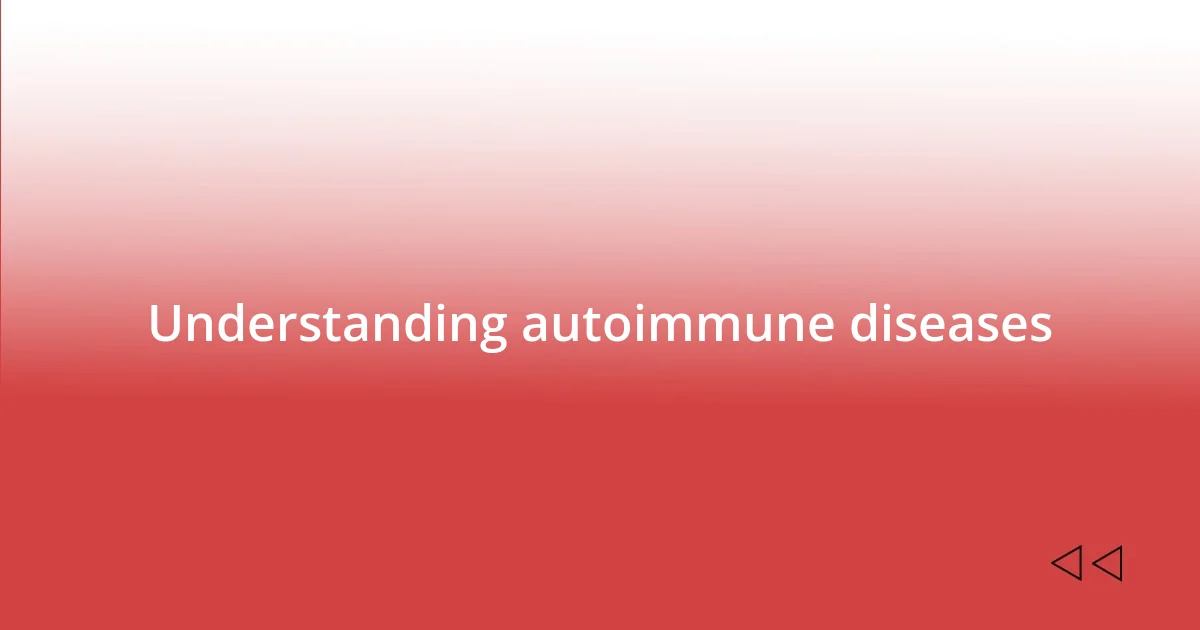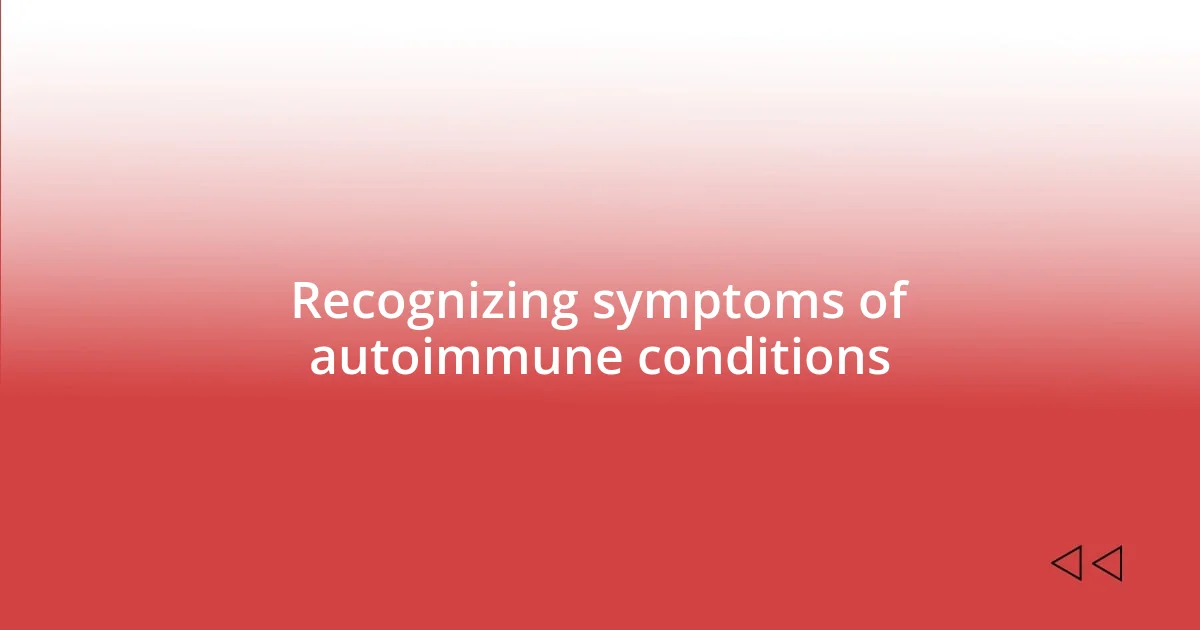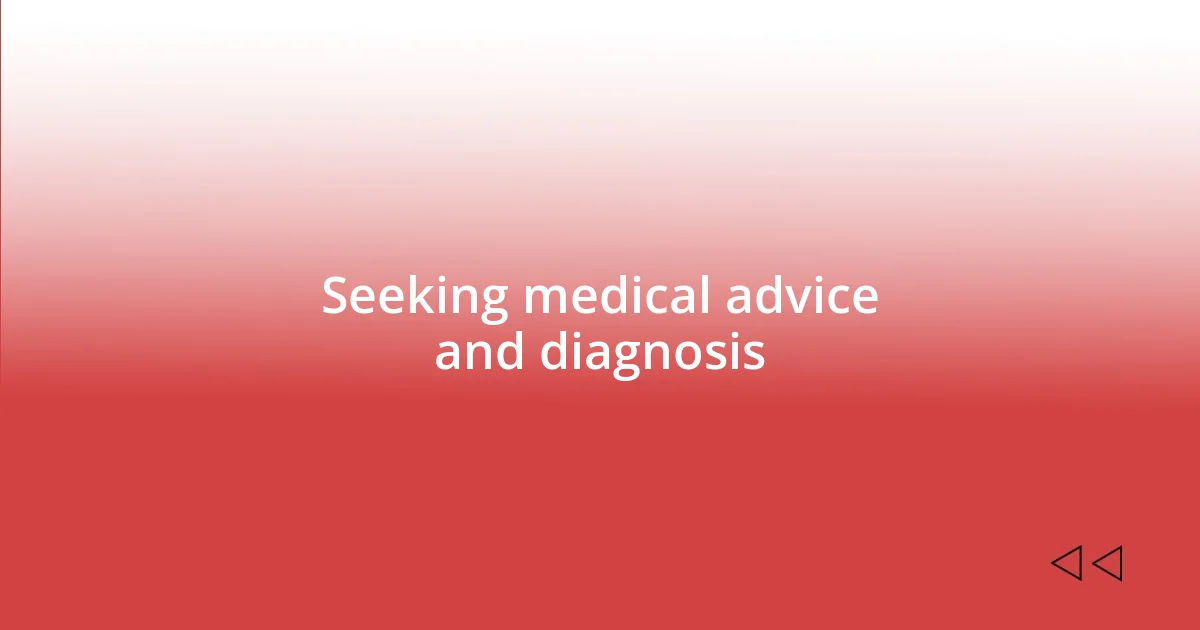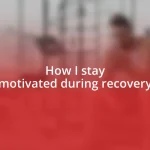Key takeaways:
- Autoimmune diseases involve the immune system mistakenly attacking healthy cells, leading to unique symptoms that often include inflammation.
- Recognizing and documenting symptoms is crucial for timely diagnosis; minor symptoms may hold significant diagnostic value.
- Sharing personal experiences can provide encouragement and foster community support, highlighting the importance of connection in navigating autoimmune challenges.

Understanding autoimmune diseases
Autoimmune diseases occur when the body’s immune system, which typically defends against infections, mistakenly attacks healthy cells. I remember feeling utterly perplexed when I first learned this, wondering how my body could turn against me in such an intimate way. It felt like my own defense mechanism had betrayed me, and that realization brought a wave of confusion and frustration.
Each autoimmune condition has its unique set of symptoms and challenges, yet they often share a common thread of inflammation. For example, I’ve seen how rheumatoid arthritis affects joints, while lupus can manifest in a wide variety of ways, impacting skin and organs. It makes you ponder—how can one immune system orchestrate such diverse reactions? Understanding these nuances has been essential on my journey, as it highlights not just the battles we face, but the individual stories behind each diagnosis.
It’s also striking to realize how autoimmune diseases can disproportionately affect women. This is something I’ve reflected on often, feeling both a part of a larger community and, at times, isolated in my experience. As I navigated my diagnosis, connecting with others who understand this unique struggle has underscored the importance of awareness and support in managing these complex diseases. How have your experiences shaped your understanding of autoimmune conditions?

Recognizing symptoms of autoimmune conditions
Recognizing symptoms of autoimmune conditions can often feel like trying to solve a jigsaw puzzle with missing pieces. For me, it started with vague feelings of fatigue that seemed to persist regardless of how much rest I got. I remember sitting on my couch one afternoon, utterly exhausted and unable to pinpoint why—I felt as if my body was working against me, but I couldn’t understand the reason until I began to link my symptoms together.
It’s essential to pay attention to early signs like joint pain, skin rashes, or digestive issues. In my experience, what seemed like a minor inconvenience, such as a recurring rash, turned out to be a significant clue. I vividly recall showing my doctor a photo of the rash I had dismissed as just “skin irritation,” only to learn that it was a classic symptom of my condition. Being proactive in recognizing these signs can lead to timely diagnosis and treatment, fostering a sense of empowerment rather than helplessness.
Here’s a comparison of some common symptoms of various autoimmune conditions that may help you in identifying potential issues.
| Autoimmune Condition | Common Symptoms |
|---|---|
| Rheumatoid Arthritis | Joint pain, stiffness, fatigue |
| Lupus | Skin rashes, joint pain, fatigue, fever |
| Multiple Sclerosis | Numbness, vision problems, fatigue |
| Hashimoto’s Thyroiditis | Fatigue, weight gain, sensitivity to cold |

Seeking medical advice and diagnosis
Seeking medical advice was a pivotal moment in my journey. I remember the apprehension as I stepped into the doctor’s office, my heart racing, wondering if I would finally get answers. It’s so easy to feel dismissed or misunderstood when discussing vague symptoms, but I learned the importance of being persistent. After several consultations, I realized that I needed to effectively communicate my experiences. To ensure I covered everything important, I prepared a list of symptoms and how they were affecting my daily life.
Here are some strategies I found helpful while seeking medical advice:
- Document Symptoms: Keep a detailed log of symptoms, including when they occur and how intense they feel.
- Be Honest and Direct: Share all your symptoms, even if they seem minor or unrelated; they might be crucial to the diagnosis.
- Ask Questions: Don’t hesitate to inquire about test results or alternative diagnoses; clarity is vital for understanding.
- Seek Second Opinions: If something doesn’t feel right, consulting another specialist can provide new insights or options.
- Find Support: Consider bringing a family member or friend to appointments; they can help remember details and provide emotional support.
Navigating the diagnosis process can be daunting, yet I found strength in not only expressing my symptoms but also advocating for myself. After numerous tests and discussions, a diagnosis finally emerged, but it felt surreal to face a label for my suffering. I could feel a wave of relief intertwined with fear—relief to know I wasn’t imagining my struggles, and fear of what lay ahead with this newfound understanding of my health. It was in this space of vulnerability that I understood the importance of a supportive healthcare team and the value of ongoing communication.

Sharing personal experiences for encouragement
Sharing personal experiences can serve as a beacon of hope for those grappling with their autoimmune diagnosis. I remember connecting with a few online communities where individuals shared their journeys. Hearing how someone else navigated similar fears and triumphs made me realize that I wasn’t alone. It’s comforting to know that the feelings of uncertainty are shared by many, and often, they can shed light on paths I hadn’t considered.
When I bravely opened up about my story at a local support group, I was overwhelmed by the reactions. A woman approached me afterwards, her eyes brimming with tears as she expressed how my honesty gave her the courage to face her own struggles. This moment underscored for me how our stories have the power to inspire. Have you ever shared your experiences in a similar way? That simple act can spark a ripple effect of encouragement within the community.
I often find solace in reflecting on the small victories along the way, and I encourage you to do the same. The journey is not always straightforward, and some days can feel particularly daunting. I recall celebrating my first pain-free day after weeks of discomfort. Those milestones, no matter how small, deserve recognition. Sharing these ups and downs with others not only helps me process my own feelings but also builds a supportive network where we can find strength together.















